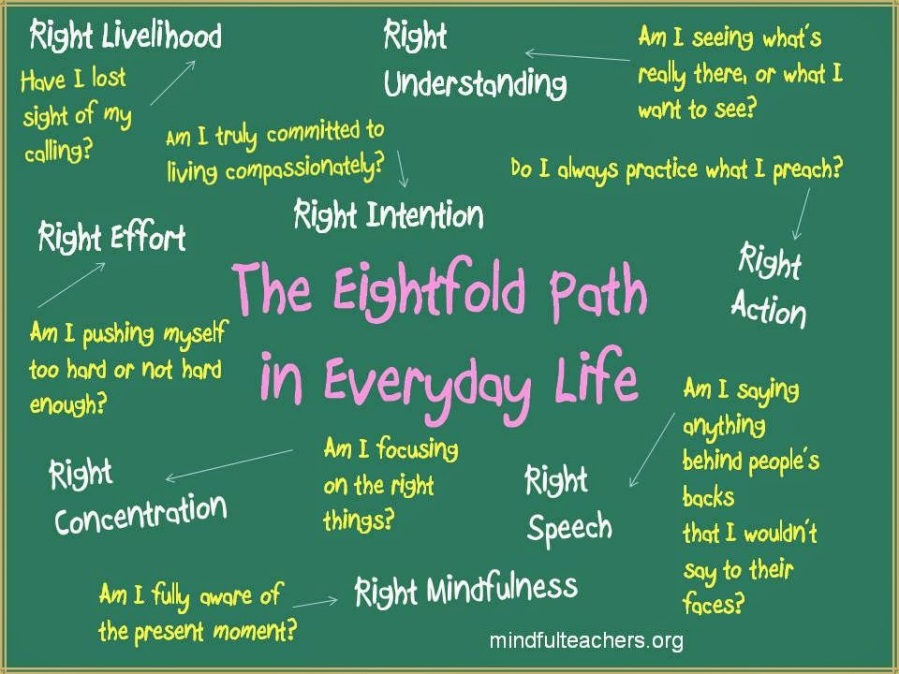(This is part of the Philosophy “Best” Bits series that can also be accessed from the top menu.)
Buddhism’s Noble Eightfold Path may be one of the best concepts to ever come out of any religion. Buddhist tradition ascribes it as the fourth of the four noble truths, taught by the original Buddha, Gautama Buddha, as the way of overcoming life’s inevitable suffering. While many may see the four truths’ admonition of life’s crappy nature as too pessimistic, it is much harder to find fault with its advice that we can better ourselves by periodically contemplating the habits of our ideas and our actions. There are many excellent explanations of the Eightfold Path on the internet that can easily be Googled, and that go into more detail than the very basic outline I’ll provide here:
Right View – One aspect of this is that we should really try to understand The Noble Truths. Another aspect of Right View – that the world, and us, and our possessions are impermanent – can truly help us come to separate our views of things from how things really are.
Right Intention – It’s not enough to just do the right things. We must habituate doing the right things for the right reasons.
Right Actions – We should attend to the effects of our actions, and attempt to adjust our future actions accordingly.
Right Speech – Be aware of the harm our words can do, especially gossip and non-constructive criticism.
Right Livelihood – I like this one, because I’ve really seen nothing like it anywhere else. Sure, we all have to earn a living, and often we have to do things we’re not crazy about in order to provide for our families, but sometimes this involves doing things which help small groups of people at the expense of society as a whole. A well contemplated life will involve scrutiny of one’s vocation as well as the consideration of change if necessary.
Right Effort – Buddhism stresses the middle way. We should be constantly considering our actions and efforts involved. This involves our time resources. It may be that we are putting too much time and effort in one area, and this time and effort can be better spent somewhere else, but we can only know this through consistent deliberate attention.
Right Mindfulness – This involves not spending too much time in the past or in the future, but instead attending to the present task at hand.
Right Concentration – Can we block out distractions effectively? Can we properly distinguish between distractions and what’s really important? If not, try to do better.
Here’s a good visualization of The Eightfold Path, from the Mindful Teachers website.









Leave a comment